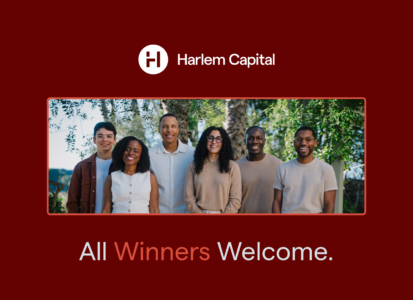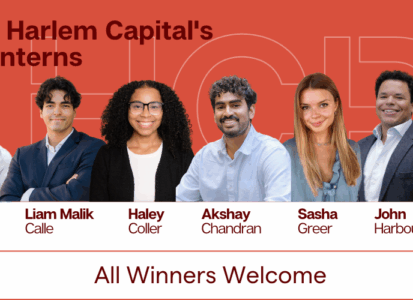More Equity Podcast: Naomi Hirabayashi and Marah Lidey of Shine
by Harlem Capital
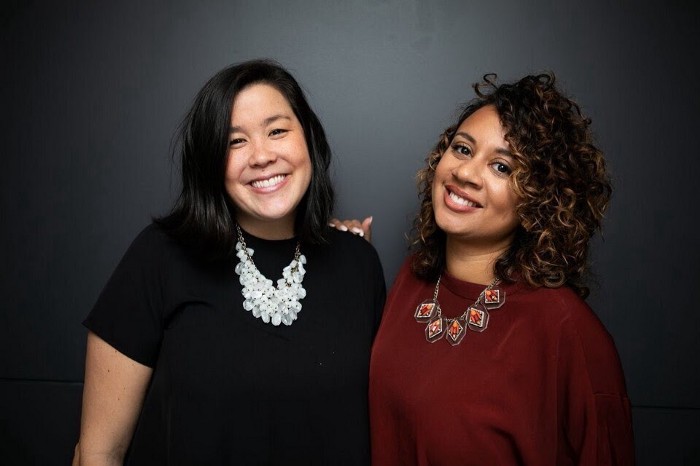
Part 5 of the Female Founders Series featuring Naomi Hirabayashi and Marah Lidey of Shine, a Harlem Capital company.
What does it look like to found a company with your best friend? Marah Lidey and Naomi Hirabayashi first met working together as senior leaders at DoSomething.Org, the largest not-for-profit exclusively for young people and social change. Marah, as the director of mobile product and messaging, and Naomi, as Chief Marketing Officer, scaled DoSomething.Org to encompass millions of members and become a ubiquitous presence in social justice-minded young peoples’ lives.
Today, Marah and Naomi are the co-founders and co-CEOs of Shine, a mental wellness app aiming to help us all through these uncertain and stressful times. We spoke with Marah and Naomi about how they bridged the distance between being “work friends” and real friends, why it’s so important for them to stay in touch with their community, and, to them, what truly equitable access to mental healthcare looks like.
Interview has been condensed and edited for clarity.
Thank you both so much for joining us today. To start off, I would love to hear what led you both to Shine.
Naomi: Thank you so much for having us, Angela. At Shine, we’re on a mission to make caring for your mental health easier, more representative, and more inclusive of all of our experiences. So we started Shine essentially because we needed it. Both Marah as a Black woman in America, myself as a half-Japanese woman, we didn’t see ourselves and our experiences represented in mainstream wellness — our bodies, our skin color, our financial access, our past traumas — it all often felt really otherized. We know that we were really lucky to meet as co-workers. The support we found in each other and our friendship really changed everything. That inspiration and our relationship really led us to know that to help more people cope and process and heal on a daily basis, they needed a solution that worked for them. That’s what inspired us to build Shine and that’s what we hope Shine does for our community.
I love that. As a woman of color as well, I can totally relate to how you’re feeling about mental healthcare representation. You touched on your friendship and how you and Marah met and I think you guys have an amazing origin story. Could you touch on how you met through DoSomething and how your relationship ultimately led to you founding a business?
Marah: Naomi and I met as co-workers, as she mentioned, and I think it was a really exciting time in our career because both of us were in a transitional phase whether we were taking on new types of roles or more senior roles. Both of us were managing larger teams for the first time; figuring out what it was like to be on a management team and interact with a board, things like that. Both of us felt a level of energy and excitement and fulfillment from being at this exciting place in our careers and also total imposter syndrome and the normal day-to-day stress and anxiety of working in a place where you feel a lot of opportunity and a lot of pressure. We both recognized really early on in our meeting one another how much our unique experience with stress and anxiety was impacted by our “non-traditional backgrounds.” That was our way of saying yeah, we’re a little bit different than a lot of people who are in entrepreneurship now. I was the first in my family to go to college, Naomi went to four colleges in five years, two of which were community colleges. We both have our own experiences being otherized when it comes to the way we look and our own past traumas; our experiences with our family dynamics. All of those things and our intersectionality as two women of color absolutely colored and impacted how we thought about our stress and anxiety.
Coming together, what we were able to do was support one another on a daily basis. Both to normalize what we’ve struggled with, whatever the issue may be. All of these things that we call “antecedents” — day to day triggers that cause stress and anxiety, but we were able to really normalize that experience for each other and say “hey, that’s not weird, I’ve been there.”
Secondarily, we’re able to help each other move through it and work through the tough stuff. Not necessarily fixing all the challenges themselves but working through the emotions that we struggled with. That was incredibly powerful. We knew there was something unique we had found in our relationship with each other that we’d often hear from our community, “I wish I had that.” People in our network — our friends and family — would often say, I wish I had someone that was with me who was thinking about how I’m feeling.
The two of you are close, as work partners and friends, and I would love to hear how you’ve navigated this relationship where you’re there for each other in a really meaningful way but also as business partners. If you could speak to some of the strategies you take to help this kind of relationship flourish, that would be awesome.
Naomi: Shine is so connected to the relationship that Marah and I have built to support each other. It’s so important for our friendship and for the business for us to, you know, essentially “date.” Both as friends and co-founders. It’s similar to the advice that a lot of married and committed couples get around still dating even if you’ve been together for a while. Life moves fast and there always might be logistics you’re working through, but if you’re not being really intentional about taking a step back and checking in with your partner, you will lose what makes the magic of why you started the [relationship]. Pre-COVID, what that looked like was every Friday before our team weekly reflection, we would do a similar reflection, just the two of us. We still do that, even though we’re remote now, we get that time every week to check in as founders and friends.
We’ve also allowed our relationship to evolve. We got some good advice from a close friend of the company, Dr. Ana Rally — sometimes what gets you to point A is not what gets you to point B. That growth mindset and curiosity is really important.
The last point — we hope this speaks to this expansion of the idea of what it means to be a leader. We’re co-CEOs, and early on, we got skepticism that two people could continue to keep this dynamic. We bring it all back to first principle thinking. For Marah and myself, our collaboration we have strengthens Shine. It helps model leadership by collaboration, not leadership by force, or the idea that there can be only one alpha. There are some toxic narratives that we’ve been raised to believe are the only way. If everything starts with what’s best for the business versus from an ego perspective, it’s so much easier to make decisions as partners and have healthy disagreements over things that impact the business.
Thanks for walking through that, Naomi. I personally think it’s so inspiring how you and Marah handle your relationship and allow it to flourish over time. Moving onto product, I think Shine plays a pretty unique role in the mental healthcare ecosystem, and for those who aren’t familiar, could you walk us through what Shine does and expand on how you’re hoping it fits into the landscape of mental healthcare?
Marah: Shine is a daily self-care app that helps you rest, heal, and grow through difficulty. We chose that language very intentionally because we believe that at the intersection of mindfulness and tools like meditation, therapy, and trauma, there is so much opportunity to bridge the gap with a solution and a tool that helps people feel seen and navigate their emotional health on a daily basis.
In terms of how that comes to life in the product, the most important piece of the product has been almost the same since we first started, which is the Daily Shine. Not exactly the same, because when we first started Shine, the Daily Shine was a text message. We’d pick a different theme rooted in emotional health, like representation burnout, and then create a lightweight conversation around it. Four years later, the [Daily Shine] is a core part of our mobile app that comes to life via a meditation. Each day, after you listen to the Daily Shine, you can reflect on it with a journal prompt and reflect on it with our community. That toolkit of self-care is what we’ve created and something we’re really proud of.
I love hearing how the product has evolved over time. I’ve heard that part of what inspired you to start Shine was “representation burnout.” Could you speak to what that is and how Shine can help combat that for users who might feel the same way?
Naomi: Representation burnout is this feeling of exhaustion that comes from being the only person of a particular identity in an environment. It is a heavy burden put on you by people to represent an identity; a community, and ultimately make you feel otherized. What’s powerful for us when we did a Daily Shine around representation burnout was the overwhelming response from our community, which was saying, “thank you for giving me the words.” Specifically, there was a 65 year old woman who was a teacher who said that representation burnout is something she has felt for over 30 years in her career. Again, she never knew what to call it. By giving our community the language, we’re helping release some of that burden.
What happens when we’re able to give our community that over indexes for marginalized backgrounds the language to express some of these experiences is we help them feel seen. The idea of feeling less alone in what you’re struggling with has been really powerful.
I think it’s amazing that in addition to that clear, really strong community of emotional support, there’s that educational as well, where you’re really just helping people put names to their experiences. Zooming out a bit, I would love to hear your take on the issue of access and representation in mental health. As both of you have touched on, there are many racial, ethnic, and socioeconomic factors that play into unequal access to mental healthcare. I’d love to hear how you took into account issues of equity and inclusion when you were building out Shine’s offerings.
Marah: As we talked about with our founding story, this hits home so much in terms of why we started Shine. We very much created this company in the name of fundamentally shifting representation in mental health. In this moment, representing and supporting Black mental health has really never mattered more. To your point, to get specific about some of those inequities, we know that Black Americans are 20% more likely to have serious psychological distress and while anxiety is the most common mental health disorder in the U.S., it impacts Black Americans at a higher rate than any other group, especially women. Anxiety, depression, all of those things hit us harder and research actually shows that depressive experiences can be more destabilizing, persistent, and resistant to treatment than those experienced by White people. And then of course, we have our own mental health disorders as Black people. Research shows that actually there’s something called racial battle fatigue, which comes from the chronic experiences of racism and microaggressions in America, and obviously other cultures, and that includes anxiety, worry, hypervigilance, headaches, increased blood pressure… all these physical and psychological symptoms that come from racism. Of course, that’s all in addition to generational trauma — what does it mean that I have the same cells as my ancestors who were slaves? What does that mean about the way in which I function in my day to day life? There’s a wealth of research around this topic and there’s so much more to be done. How might we take that into account and how might other companies consider being specific about Black mental health and the disparities we’re seeing?
First and foremost, representation is the most important thing you can do. This time has been interesting as a company that is mostly BIPOC. It’s been interesting to see companies react to this global uprising against systemic racism and apply solutions to broken infrastructures, which means that the solution is going to be broken as well. A lot of this stuff needs to be re-written from the ground up. I think being a company that is founded by people of color and mostly people of color has made our product so representative and inclusive since the beginning. It was natural for us to hire people with a strong sense of resilience and had experienced some sense of trauma in their life. 90% of our content is actually created and voiced by Black women, and that is reflected in our community. Our community overindexes for the national population of Black women — twice as much. We’ll start to see more of products representing what the world looks like if you hire for that.
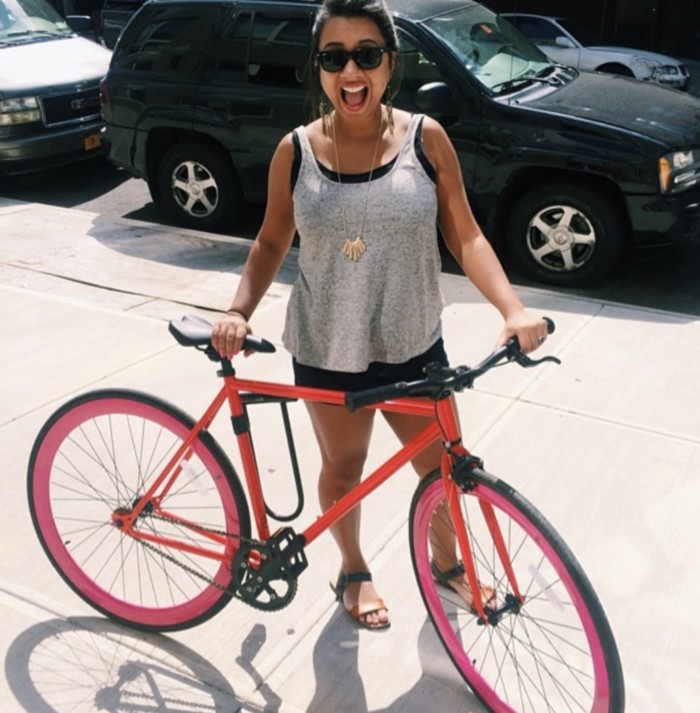
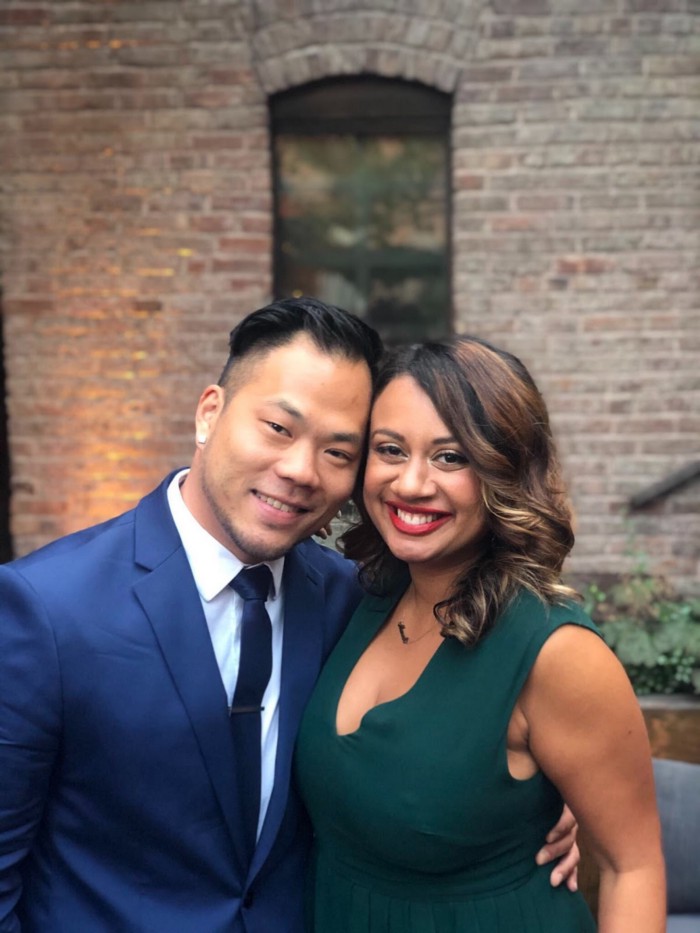
Thank you for honing in on that issue of Black mental health. We’re at a time when companies and individuals are being pressed on how they can be better allies and these issues have never been closer to the forefront of our national consciousness.Jumping to fundraising and your experience with raising venture capital, I would love to hear as a wellbeing company and one looking for a more representative version of wellbeing, is there anything specific you were looking for in an investor as you were raising your Series A?
Marah: Yes, 100%. The most important thing that might sound obvious is finding a really good human. These are very long, close relationships and you want to work with people who can support you through the good times and the tougher times. And that’s why we always do reference checks, talking with people who we might not get directly from the investor. You want to hear from people who maybe haven’t been in the press lately or maybe had to fold their company. Because you want to know, how does that investor deal with difficult times? A couple other things… Certainly, a value add. You’d be surprised at sometimes investors that might come from these big name, sexy VC firms that aren’t really willing to get their hands dirty. They might be a great name, but we’re not really interested in that. We want someone we can call up about issues and insights and introductions. And of course, representation. Most of our investors are people of color and women of color. Who we take money from should be representative of the world as it is and of course, our community.
One of the trickier things to find can be investors who look for founder-market fit. There are some investors who get really excited about a product and want to tell you all the things you should do with your product. That’s great, but also, having a balance with that kind of skillset and the investor understanding that as founders of a company like Shine, this is something that truly came from our hearts and really is our life’s work.
Shout out to our investors, as well, because these check marks are all things we have and are really special across Daniel Gulati at Comcast, Nihal at Eniac, Matt Hartman at Betaworks, and of course Henri and the entire team at Harlem Capital. There are so many to mention, but we just have a really stellar group of investors who have made us feel so seen and supported. We’re really grateful that we’ve been able to find this cohort of investors that has our back.

Congratulations on building up that investor base and thank you for sharing that idea of founder-market fit. I would love to zoom out and hear more about your lives and how you’re approaching building Shine and measuring success more holistically. To close, I would love to ask both of you, how do you define success both in your career and in your life?
Naomi: I love this question. I can start. In terms of how we define success — I mean, even that question itself is so big because of the pressures and images of what success is supposed to be. Personally, I really love that our generation is challenging this idea of the perfect work-life balance, which can often feel like a moving target and you’ve never fully arrived. Something I’ve been working on as I get older and have more experiences and figure out, “What actually feels right and fulfilling?” Even “happiness” can feel really loaded as this finite destination. I’m striving for more feelings of fulfillment. Part of that includes recognizing that our life is made up of a lot of small, meaningful, everyday moments, versus these huge, momentous, milestones and next-level feelings of joy. Journaling has really helped me with that — to see that often, what I’m reflecting on are just everyday moments of joy with people that matter to me, working on things that matter to me, and trying as best as humanly possible to be present in those everyday moments. I want to be fulfilled in where I’m spending my time professionally — I have a lot of identity in what I do. The other thing — and this is why my relationship with Marah matters so dearly to me — is that I want to be fulfilled by the people I spend time with. I gravitate towards people who challenge me, help me see new perspectives, and ultimately energize me with their approach to being alive.
Marah: On my end, what success looks like is a big +1 to what Naomi said, especially around being present. Also, this idea of rejecting striving. Striving is such a part of American culture, consumerism, and capitalism — all these things that we’re actively involved in. The idea of being present and focusing on the moments in your day is such a powerful way to live your life. If you’re constantly striving for the next thing, I promise you, and we have felt this firsthand, when you get there, you won’t appreciate it. You will be striving for the next thing. I can’t tell you how many times within our company and certainly our personal life, as soon as we raise that next round, we can really enjoy it. It feels so easy to constantly strive for that next major milestone and it really diminishes the joy of the milestone itself when you’re not able to learn the practice of accepting and loving your day to day.
Follow Marah, Naomi, and Shine:
Twitter: @marahml @naomi_nyc @shine_text
Instagram: @shinetext @marah.naomi
